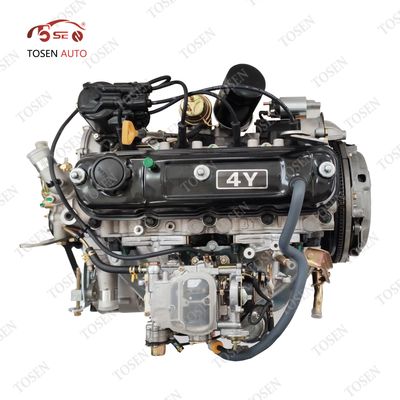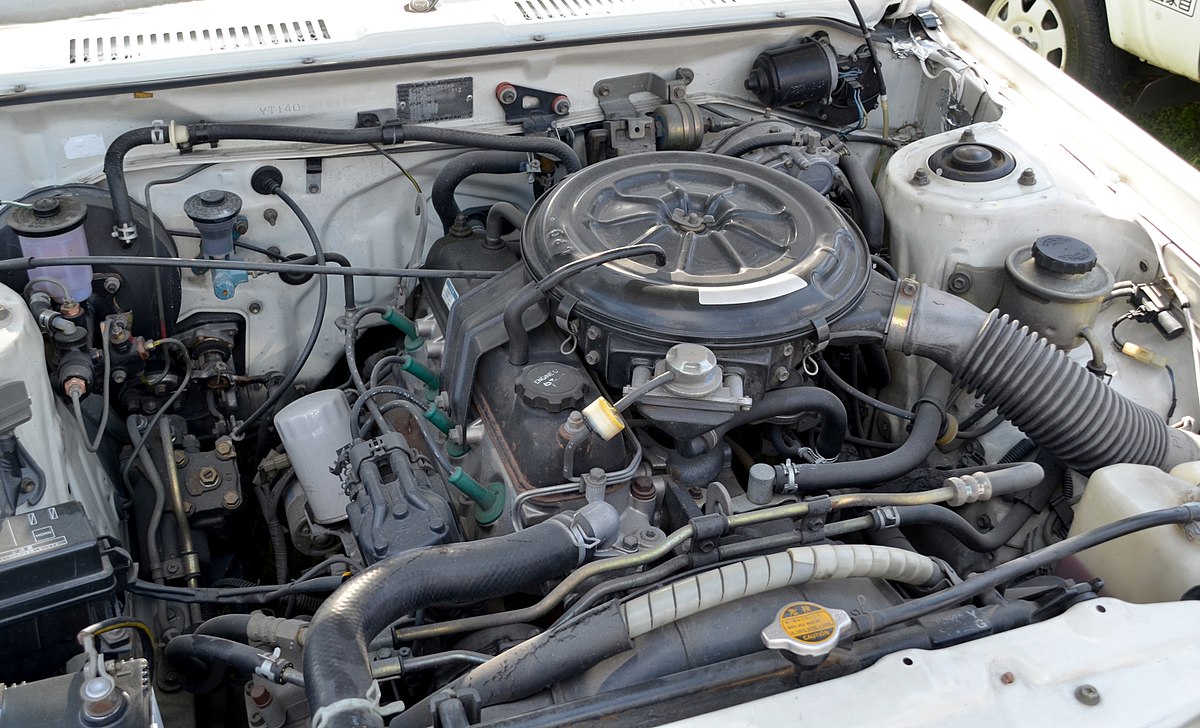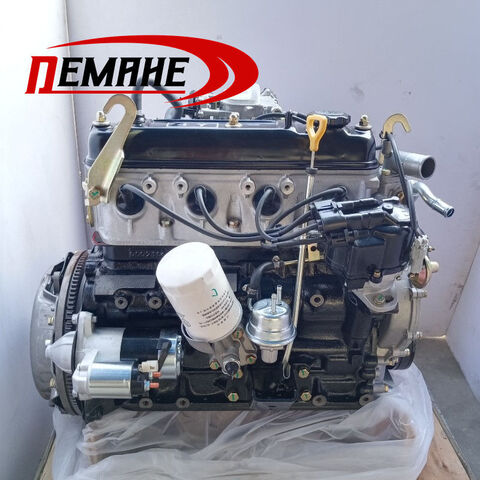How the 4Y Engine Contributes to a Smooth and Powerful Driving Experience
How the 4Y Engine Contributes to a Smooth and Powerful Driving Experience
Blog Article
Discovering the Numerous Sorts Of Engine: Which One Fits Your Demands?
Interior burning engines proceed to control due to their dependability, while electric engines are gaining grip for their sustainability. Crossbreed engines provide a versatile concession, and diesel engines stand out for their power in demanding applications.

Internal Burning Engines
Interior combustion engines (ICEs) are the foundation of contemporary transport, powering a huge range of cars from vehicles to aircrafts. These engines run on the principle of transforming fuel right into mechanical power through a collection of regulated explosions within a burning chamber. The most usual sorts of ICEs consist of gas engines, diesel engines, and rotating engines, each made to fulfill particular performance and efficiency demands.
Gasoline engines typically use spark ignition, while diesel motor rely upon compression ignition, causing distinct distinctions in fuel performance and power output (4y engine). Rotating engines, or Wankel engines, provide a portable style and smooth procedure, however are less frequently made use of in mainstream applications
ICEs have undergone considerable improvements in modern technology, consisting of the intro of turbocharging and gas injection systems, which enhance total performance and efficiency. In spite of their efficiency enhancements, ICEs encounter enhancing examination due to their ecological influence, particularly pertaining to greenhouse gas discharges.
Electric Engines
As worries about environmental sustainability and nonrenewable fuel source dependence expand, electrical engines have arised as a compelling option to internal combustion engines. These engines use electrical motors powered by batteries or gas cells, offering a cleaner and extra efficient methods of propulsion.
Among the key benefits of electric engines is their minimized discharges. Unlike traditional engines that melt fossil gas, electrical engines create absolutely no tailpipe emissions, dramatically decreasing air pollution and adding to improved public wellness. Additionally, the performance of electrical motors frequently exceeds that of internal combustion engines, transforming a greater percentage of power from the power resource right into useful power for activity.
Electric engines are likewise noteworthy for their silent procedure, making them suitable for metropolitan atmospheres. 4y engine. The simpleness of their layout results in fewer relocating parts, which can result in lowered upkeep prices and raised dependability gradually
Nonetheless, difficulties continue to be, including battery manufacturing impacts, billing framework, and variety limitations. Regardless of these obstacles, the expanding investment in electric car technology and renewable resource sources points toward an encouraging future for electric engines, placed to play an essential duty in the change towards lasting transportation.
Crossbreed Engines
Mixing the benefits of both conventional and electric inner burning engines, hybrid engines stand for a versatile service in the quest for efficient and lasting transportation. These engines integrate a gasoline or diesel motor with an electrical motor, permitting improved fuel performance and lowered informative post discharges compared to traditional vehicles.
Hybrid engines run in a number of modes, making use of the electric motor for low-speed driving and the internal burning engine for higher rates or when even more power is required. This vibrant procedure not only enhances fuel economy yet additionally adds to a smoother driving experience. Regenerative stopping is another critical feature, recording energy generally lost throughout stopping and redirecting it to reenergize the battery.

As customers increasingly prioritize eco-friendliness, crossbreed engines stand out as a useful option, supplying an efficient balance of performance, efficiency, and environmental duty. This versatility makes them suitable for urban travelling and long-distance traveling alike.
Diesel Motor
Efficiency and power are characteristics of diesel motor, which have long been favored for their robustness and gas economy. These engines operate the concept of compression ignition, where air is pressed to a heat before fuel is infused, sparking it without the need for ignition system. This procedure enables diesel engines to achieve higher thermal performance compared to gas engines, translating into much better gas gas mileage and reduced carbon dioxide exhausts.
Diesel motor are particularly well-suited for heavy-duty applications such as vehicles, buses, and commercial machinery, where torque and sturdiness are extremely important. Their style usually consists of stronger parts to withstand the higher stress produced throughout procedure, resulting in longer life span and lowered upkeep prices.

Alternative Fuel Engines
While diesel motor have lengthy dominated the landscape of durable power resources, different gas engines are gaining grip as sensible alternatives for a much more sustainable find more future. These engines utilize a range of gas, such as compressed gas (CNG), hydrogen, ethanol, and gas, intending to reduce greenhouse gas discharges and reliance on nonrenewable fuel sources.
One substantial advantage of different fuel engines is their possible to reduced carbon impacts. For example, CNG engines release less toxins contrasted to traditional diesel motor, making them ideal for city transportation systems and fleets looking for to boost air top quality. Ethanol, derived from biomass, not only minimizes emissions but additionally supports agricultural economic climates.
Hydrogen fuel cells represent a sophisticated development in this world, supplying zero-emission power through a chain reaction in between hydrogen and oxygen. However, difficulties such as infrastructure advancement and manufacturing costs continue to be barriers to extensive adoption - 4y engine.
Verdict
Internal burning engines provide dependability, while electric engines focus on sustainability and reduced maintenance. Hybrid engines combine the benefits of both, improving effectiveness, whereas diesel engines give remarkable power and torque for heavy-duty applications.
Crossbreed engines provide a versatile concession, and diesel engines stand out for their power in Homepage requiring applications. The most common kinds of ICEs include gas engines, diesel engines, and rotary engines, each developed to fulfill certain performance and efficiency demands.
Unlike standard engines that shed fossil gas, electrical engines create zero tailpipe exhausts, considerably decreasing air contamination and adding to enhanced public wellness.Hybrid engines operate in several modes, utilizing the electric motor for low-speed driving and the internal burning engine for greater rates or when even more power is needed. Hybrid engines combine the advantages of both, boosting effectiveness, whereas diesel engines provide remarkable power and torque for heavy-duty applications.
Report this page